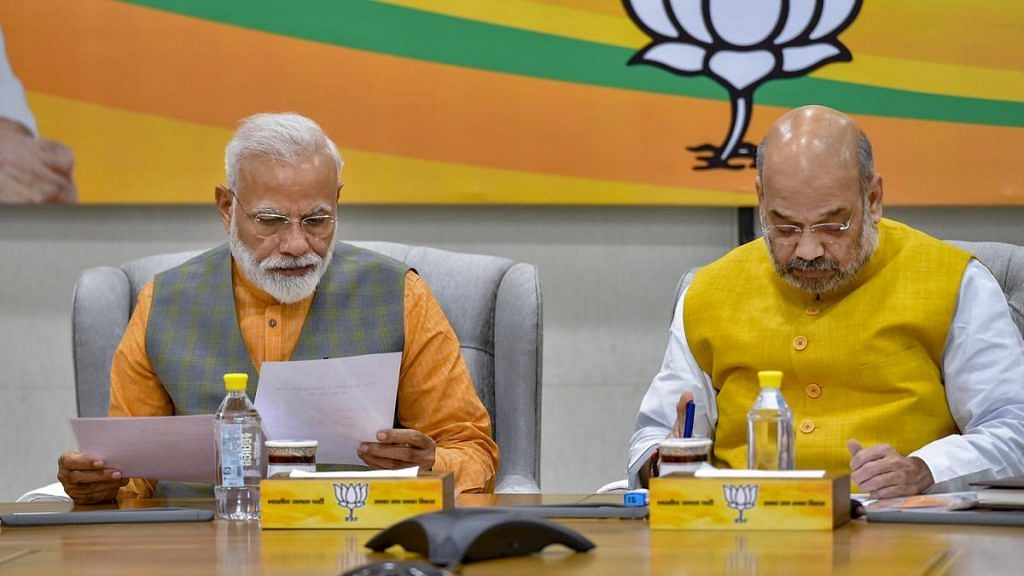The Election Commission has recently told the Supreme Court, and rightly so, that electoral bonds are not a very transparent way of political funding.
It was unwise on the part of the BJP-led NDA government to have pushed through the scheme in the first place.
The run-up to the election may not be an ideal time for course-correction, but after 23 May, the new dispensation must scrap this system of political donation.
The current electoral bond scheme is probably a great example of a ‘good in intent, bad in content’ decision.
While strict financial norms should be in place for political funding, the electoral bond scheme in its current form is not the answer to the long-standing issues of corruption and illegal donations to parties. Instead, it appears to be adding to the problem.
For a party that came to power on the avowed promise of transparency, clean governance and zero tolerance to corruption, the entire method of collecting party funds through electoral bonds seems to be going contrary to the pre-election promises and the good work done in the last five years.
Also read: Electoral bonds worth more than Rs 1,000 crore issued in 2017-18, says RTI reply
Problems with electoral bonds
Electoral bonds are essentially bearer bonds purchased from a designated bank that allow any individual or a corporate entity to donate money to a party in total secrecy.
The argument that since the bonds are purchased from a bank ‘the money is white and the donation transparent’ does not hold as the donor’s identity is kept anonymous. This goes against the spirit of transparency.
Again, allowing foreign companies, which have a majority stake in an Indian firm, to donate to political parties is viewed by many as a serious breach of security and an invitation to manipulate government decisions and economic policies.
A global challenge
Democracies all over the world have grappled with the issue of lack of transparency in political funding, and have tried to come out with solutions that best suit them.
Worried about the ‘commercialisation’ of elections, the British Justice Ministry’s 2008 report on party finance and expenditure said: “Elections should be contests of ideas and visions but recently they have become overshadowed by a chase to raise vast sums of money. British party politics has become entrapped in what has been described as a spending ‘arms race’ with the two biggest parties way out in front and the smaller parties trying to keep up as best as they can”.
Also read: Finance ministry’s own division shares EC’s concerns on electoral bonds & transparency
According to International Institute for Democracy and Electoral Assistance’s political finance database, “about 31 per cent of countries currently impose limits on the amount of money a party can spend, and over 45 per cent restrict individual candidate spending”.
In the US, political funding is open and transparent and all campaign assistance is public knowledge. Foreign nationals, for instance, cannot fund political campaigns.
National debate needed
In keeping with the global trend of ‘electoral reform’, the Narendra Modi government launched the electoral bond scheme last year. But it has not managed to achieve the level of transparency it promised.
If the government is serious about clean governance, it should call for a national debate on electoral bonds and political funding. Additionally, the Supreme Court, where the case is listed for a hearing next week, and the Election Commission too can call for greater public participation and intervention before deciding on this matter.
Also read: Despite ‘reform’, political parties are getting large anonymous donations
Setting up a national election fund, an idea that scholar and senior ORF fellow Niranjan Sahoo says was first proposed by former Prime Minister V.P. Singh, is a suggestion worth debating. Democracy and transparency in public life are serious subjects that cannot be left to the wisdom of the political class alone.
The author is the former editor of ‘Organiser’.
